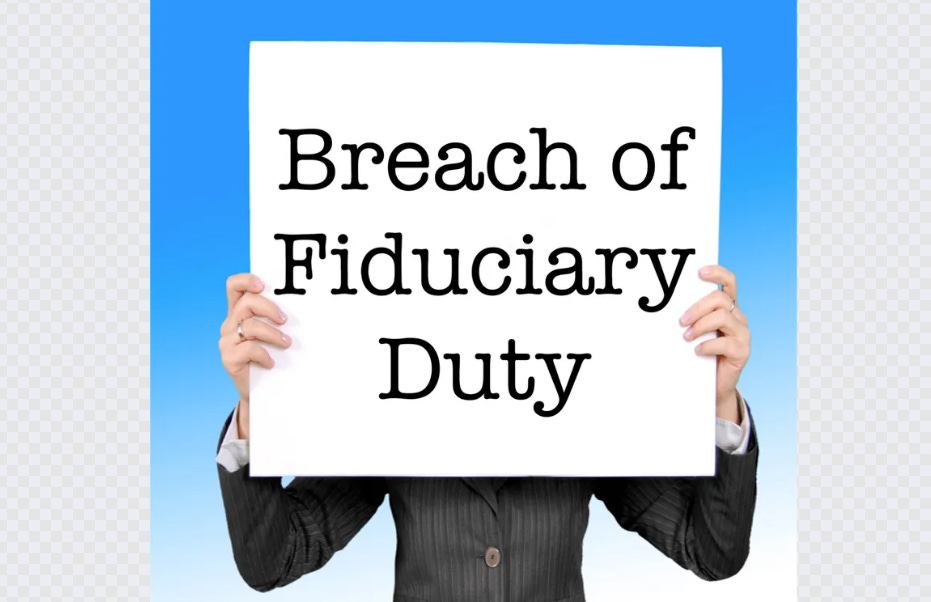Understanding Fiduciaries
Fiduciary negligence is a form of professional malpractice when a person fails to honor their fiduciary obligations and responsibilities
At some point of time, building a company means raising money and having stockholders. Along it with it comes fiduciary responsibilities. A simple way to understand is, now you are responsible for taking care of a “joint property.” A well pleaded breach of fiduciary duty complaint which provides sufficient evidence that the Board has breached its fiduciary duties will undergo a fairness review (“entire fairness” under Delaware law.)
What Is a Fiduciary?
A fiduciary is a person or organization that acts on behalf of another person or persons, putting their clients’ interests ahead of their own, with a duty to preserve good faith and trust. Being a fiduciary thus requires being bound both legally and ethically to act in the other’s best interests.
A fiduciary is legally bound to put their client’s best interests ahead of their own.
Fiduciary duties appear in a range of business relationships, including a trustee and a beneficiary, corporate board members and shareholders, and executors and legatees.
An investment fiduciary is anyone with legal responsibility for managing somebody else’s money, such as a member of the investment committee of a charity.
Registered investment advisors and insurance agents have a fiduciary duty to clients.
Broker-dealers just have to meet the less-stringent suitability standard, which doesn’t require putting the client’s interests ahead of their own.
Understanding Fiduciaries
A fiduciary’s responsibilities and duties are both ethical and legal. When a party knowingly accepts a fiduciary duty on behalf of another party, they are required to act in the best interest of the principal (i.e., the client or party whose assets they are managing). This is what is known as a “prudent person standard of care,” a standard that originally stems from an 1830 court ruling.
This formulation of the prudent-person rule required that a person acting as fiduciary was required to act first and foremost with the needs of beneficiaries in mind. Strict care must be taken to ensure that no conflict of interest arises between the fiduciary and their principal.
Fiduciary duties appear in a wide variety of common business relationships, including:
Trustee and beneficiary (the most common type)
Corporate board members and shareholders
Executors and legatees
Guardians and wards
Promoters and stock subscribers
Lawyers and clients
Investment corporations and investors
Insurance companies/agents and policyholders
Fiduciary negligence is a form of professional malpractice when a person fails to honor their fiduciary obligations and responsibilities.
Fiduciary Relationship Between Trustee and Beneficiary
Estate arrangements and implemented trusts involve both a trustee and a beneficiary. An individual named as a trust or estate trustee is the fiduciary, and the beneficiary is the principal. Under a trustee/beneficiary duty, the fiduciary has legal ownership of the property or assets and holds the power necessary to handle assets held in the name of the trust. In estate law, the trustee may also be known as the estate’s executor.
Note that the trustee must make decisions that are in the best interest of the beneficiary, as the latter holds equitable title to the property. The trustee/beneficiary relationship is an important aspect of comprehensive estate planning, and special care should be taken to determine who is designated as trustee.
Fiduciary Relationship Between Board Members and Shareholders
A similar fiduciary duty can be held by corporate directors, as they can be considered trustees for stockholders if on the board of a corporation, or trustees of depositors if they serve as the director of a bank. Specific duties include the following:
Duty of Care: Duty of Care applies to the way the board makes decisions that affect the future of the business. The board has the duty to fully investigate all possible decisions and how they may impact the business. If the board is voting to elect a new chief executive officer (CEO), for example, the decision should not be made based solely on the board’s knowledge or opinion of one possible candidate; it is the board’s responsibility to investigate all viable applicants to ensure that the best person for the job is chosen.
Duty to Act in Good Faith: Even after it reasonably investigates all the options before it, the board has the responsibility to choose the option that it believes best serves the interests of the business and its shareholders.
Duty of Loyalty: Duty of loyalty means the board is required to put no other causes, interests, or affiliations above its allegiance to the company and the company’s investors. Board members must refrain from personal or professional dealings that might put their own self-interest or that of another person or business above the interest of the company.
The potential for majority shareholders to take advantage of their control over the company’s affairs many courts impose a fiduciary duty on the majority shareholders to the minority. If a member of a board of directors is found to be in breach of their fiduciary duty, they can be held liable in a court of law by the company itself or its shareholders.
Contrary to popular belief, there is no legal mandate that a corporation is required to maximize shareholder return.
More Examples of Fiduciaries
Fiduciary Relationship Between Executor and Legatee
Fiduciary Relationship Between Guardian and Ward
Fiduciary Relationship Between Attorney and Client
Fiduciary Relationship Between Principal and Agent
Investment Fiduciary
Disclaimer: The information provided does not, and is not intended to, constitute legal advice; instead, all information, content, and materials available are for general informational purposes only.




